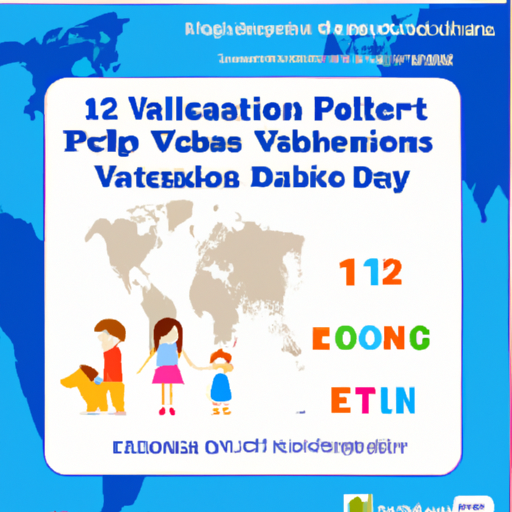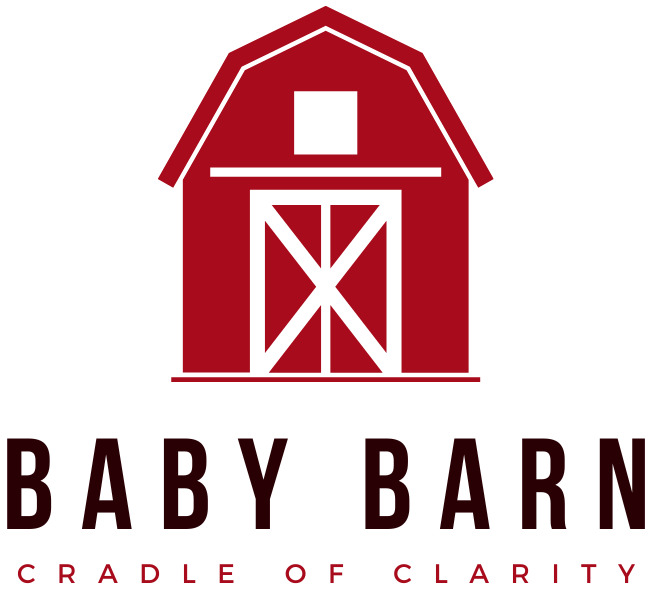Curious to know what the recommended vaccination schedule is for babies? Well, you’re in the right place! In this article, we will dive into the crucial topic of vaccinations and provide you with all the information you need to ensure your little one receives the necessary immunizations to keep them healthy and protected. From the first few weeks after birth to their early years, we’ll guide you through the timeline of vaccines recommended by healthcare professionals.
So, buckle up and get ready to learn more about the recommended vaccination schedule for babies. We’ll discuss the importance of vaccinations, the specific vaccines your baby should receive at different ages, and why following the recommended schedule is essential for their well-being. Stay tuned to find out more about the crucial role vaccines play in safeguarding your baby’s health and preventing the spread of contagious diseases. Let’s make sure your little one starts off their life with a strong immune system!
Importance of Vaccinations for Babies
Vaccinations play a crucial role in protecting babies from serious and life-threatening diseases. By following the recommended vaccination schedule, you can ensure the health and well-being of your child. Vaccines provide a safe and effective way to prevent diseases that can cause severe complications or even death. In this article, we will explore the benefits of vaccinations, the recommended vaccination schedule, and the importance of following it.
Benefits of Vaccinations
Vaccines offer several benefits to babies, and one of the most significant ones is disease prevention. By receiving vaccines, babies develop immunity against serious diseases, making them less vulnerable to infections. Vaccines work by stimulating the body’s immune system to produce antibodies that fight off specific viruses or bacteria. This immune response helps protect babies from developing diseases, even if they are exposed to them.
Another crucial benefit of vaccinations is herd immunity. When a large percentage of the population is vaccinated, it creates a protective barrier, preventing the spread of diseases through the community. This is especially important for newborns who are too young to receive certain vaccines. By vaccinating yourself and your child, you contribute to the overall health of the community and safeguard those who are more vulnerable, such as infants and individuals with weakened immune systems.
Protecting Against Serious Diseases
Now let’s dive into the recommended vaccination schedule for babies. It is important to note that the vaccination schedule may vary slightly depending on the country and healthcare provider. The following schedule is based on the guidelines provided by the Centers for Disease Control and Prevention (CDC) in the United States.
Vaccination Schedule
Birth to Six Weeks
During this period, the first dose of the hepatitis B vaccine is typically given. Hepatitis B is a viral infection that affects the liver and can lead to chronic conditions such as liver damage, cirrhosis, and even liver cancer. Administering the vaccine shortly after birth helps protect babies from potential exposure to the virus.
Two Months
At two months of age, babies receive the first dose of the DTaP vaccine, which protects against diphtheria, tetanus, and pertussis (whooping cough). Diphtheria is a bacterial infection that primarily affects the throat and can lead to difficulty breathing and heart failure. Tetanus, commonly known as lockjaw, is caused by a bacterial toxin and can cause muscle stiffness and spasms. Pertussis is a highly contagious respiratory infection that can be life-threatening, especially in infants.
Babies also receive the first dose of the Hib vaccine, which protects against Haemophilus influenzae type b. This bacterium can cause serious infections such as meningitis, pneumonia, and epiglottitis.
Additionally, the first dose of the pneumococcal vaccine is administered to protect against pneumococcal bacteria, which can cause pneumonia, meningitis, and bloodstream infections.
Four Months
At four months, babies receive the second dose of the DTaP, Hib, and pneumococcal vaccines. These booster doses help strengthen their immune response and provide continued protection against these diseases.
Six Months
At six months, babies receive the third dose of the DTaP, Hib, and pneumococcal vaccines. This completes the primary series for these vaccines and ensures maximum protection.
One Year
At one year of age, babies receive the first dose of the measles, mumps, and rubella (MMR) vaccine. Measles is a highly contagious viral infection that can cause severe complications, including pneumonia and encephalitis. Mumps is also a viral infection that primarily affects the salivary glands, but it can also lead to meningitis and other complications. Rubella, also known as German measles, can cause birth defects if contracted during pregnancy.
Babies also receive the first dose of the varicella (chickenpox) vaccine at one year. Chickenpox is a highly contagious viral infection that causes a blister-like rash, fever, and general discomfort. Vaccination helps prevent complications and reduces the risk of spreading the virus to others.
15 to 18 Months
Between 15 to 18 months, babies receive the fourth dose of the DTaP vaccine and the second dose of the MMR and varicella vaccines. These booster doses further enhance their immune response and provide long-term protection against these diseases.
Four to Six Years
Between four to six years of age, children receive another dose of the DTaP vaccine, as well as the final dose of the MMR and varicella vaccines. These vaccinations help maintain their immunity and provide additional protection as they enter school and interact with a larger group of children.

Hepatitis B Vaccine
When is it Given?
The first dose of the hepatitis B vaccine is typically given shortly after birth, usually within the first 24 hours. The second and third doses are usually administered at one to two months and six to 18 months of age, respectively.
Why is it Important?
Hepatitis B is a serious viral infection that can lead to chronic liver disease and other complications. By vaccinating babies against hepatitis B, you can protect them from potential exposure to the virus and prevent the development of long-term health problems.
Potential Side Effects
The hepatitis B vaccine is generally safe and well-tolerated. Common side effects may include soreness or redness at the injection site, mild fever, and fussiness. Serious side effects are rare.
DTaP Vaccine
When is it Given?
The DTaP vaccine is given in a series of five doses, typically at two, four, six, and 15 to 18 months of age, with a final dose between four to six years.
Why is it Important?
The DTaP vaccine protects against three serious diseases: diphtheria, tetanus, and pertussis. These diseases can cause severe complications and even death, especially in infants. Vaccinating babies with the DTaP vaccine helps build their immunity and safeguards them from these preventable diseases.
Potential Side Effects
Common side effects of the DTaP vaccine may include redness, swelling, or soreness at the injection site, slight fever, and irritability. Serious side effects are rare.

Hib Vaccine
When is it Given?
The Hib vaccine is typically given at two, four, six, and 12 to 15 months of age.
Why is it Important?
The Hib vaccine protects against Haemophilus influenzae type b, a bacterium that can cause serious infections, including meningitis, pneumonia, and epiglottitis. Vaccinating babies with the Hib vaccine helps prevent these potentially life-threatening illnesses.
Potential Side Effects
Common side effects of the Hib vaccine may include redness, swelling, or soreness at the injection site, mild fever, and fussiness. Serious side effects are rare.
Pneumococcal Vaccine
When is it Given?
The pneumococcal vaccine is typically given at two, four, six, and 12 to 15 months of age.
Why is it Important?
Pneumococcal bacteria can cause various illnesses, including pneumonia, meningitis, and bloodstream infections. The pneumococcal vaccine protects against these infections and helps prevent severe complications in babies.
Potential Side Effects
Common side effects of the pneumococcal vaccine may include pain at the injection site, mild fever, and irritability. Serious side effects are rare.

Rotavirus Vaccine
When is it Given?
The rotavirus vaccine is given in a series of two or three doses, usually at two, four, and six months of age.
Why is it Important?
Rotavirus is a highly contagious virus that can cause severe diarrhea and dehydration, especially in young children. The rotavirus vaccine offers protection against this common and potentially dangerous infection.
Potential Side Effects
Common side effects of the rotavirus vaccine may include mild diarrhea or vomiting, irritability, and mild fever. Serious side effects are rare.
Measles, Mumps, and Rubella (MMR) Vaccine
When is it Given?
The MMR vaccine is typically given at one year of age, with a second dose between 15 to 18 months.
Why is it Important?
The MMR vaccine protects against three viral infections: measles, mumps, and rubella. Measles can cause severe complications, including pneumonia and encephalitis. Mumps primarily affects the salivary glands but can also lead to meningitis and other complications. Rubella can cause birth defects if contracted during pregnancy. Vaccinating babies with the MMR vaccine helps prevent these diseases and their potential complications.
Potential Side Effects
Common side effects of the MMR vaccine may include a mild rash, fever, and fussiness. Serious side effects are rare.
Varicella (Chickenpox) Vaccine
When is it Given?
The varicella vaccine is typically given at one year of age, with a second dose between four to six years.
Why is it Important?
Chickenpox is a highly contagious infection that causes a blister-like rash, fever, and general discomfort. Vaccinating babies with the varicella vaccine helps prevent this common childhood illness and reduces the risk of complications.
Potential Side Effects
Common side effects of the varicella vaccine may include soreness or swelling at the injection site, mild rash, and a slight fever. Serious side effects are rare.
Conclusion
Following the recommended vaccine schedule for babies is crucial for protecting their health and well-being. Vaccines provide a safe and effective way to prevent serious diseases and their potential complications. By ensuring that your child receives all the recommended vaccines, you not only protect them but also contribute to the overall health of the community by preventing the spread of these diseases. Talk to your healthcare provider about the specific vaccination schedule for your baby and ensure that they receive the necessary protection against preventable illnesses. Remember, the health of your baby is in your hands, so make sure you stay up to date with their vaccinations.





